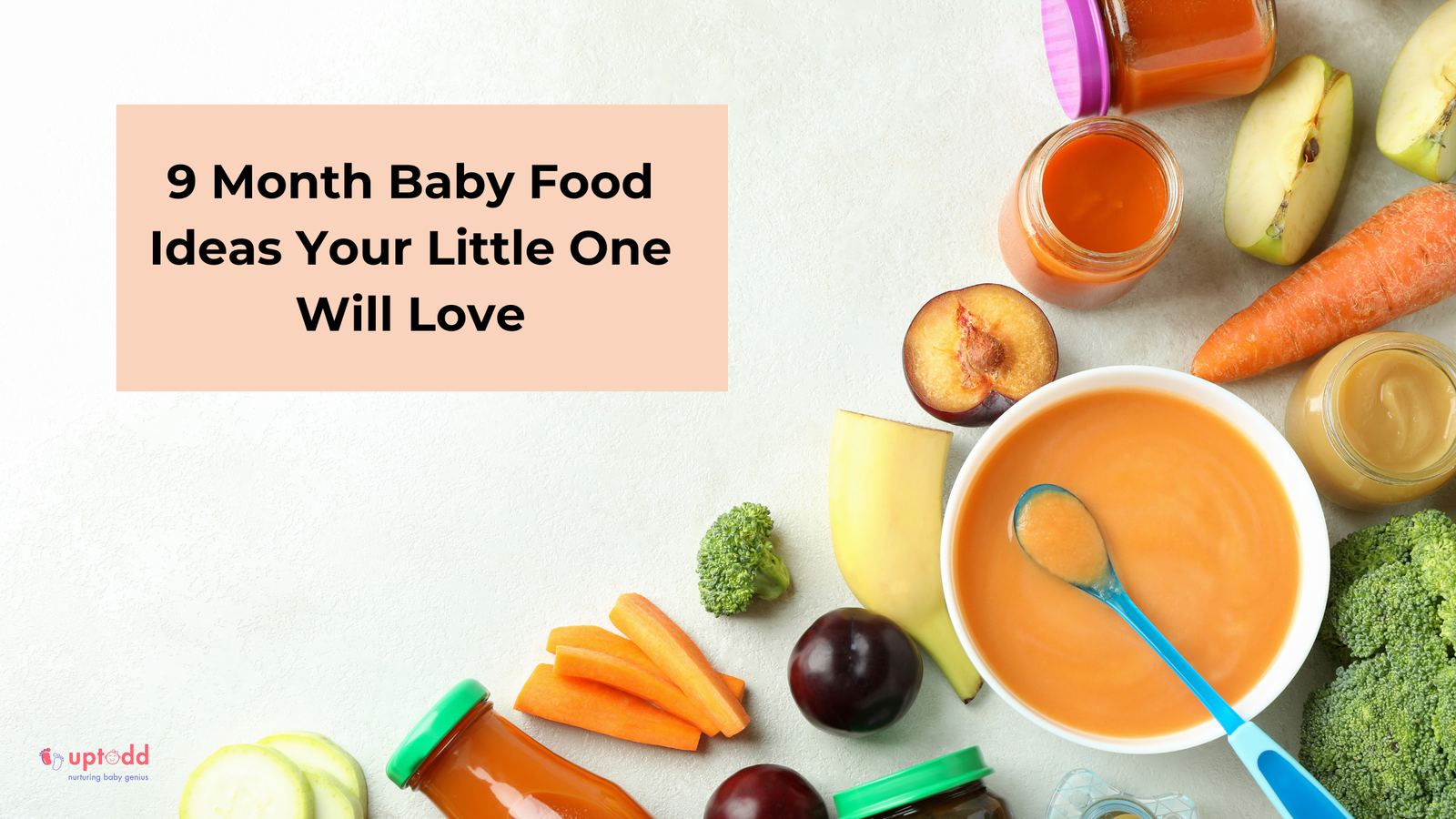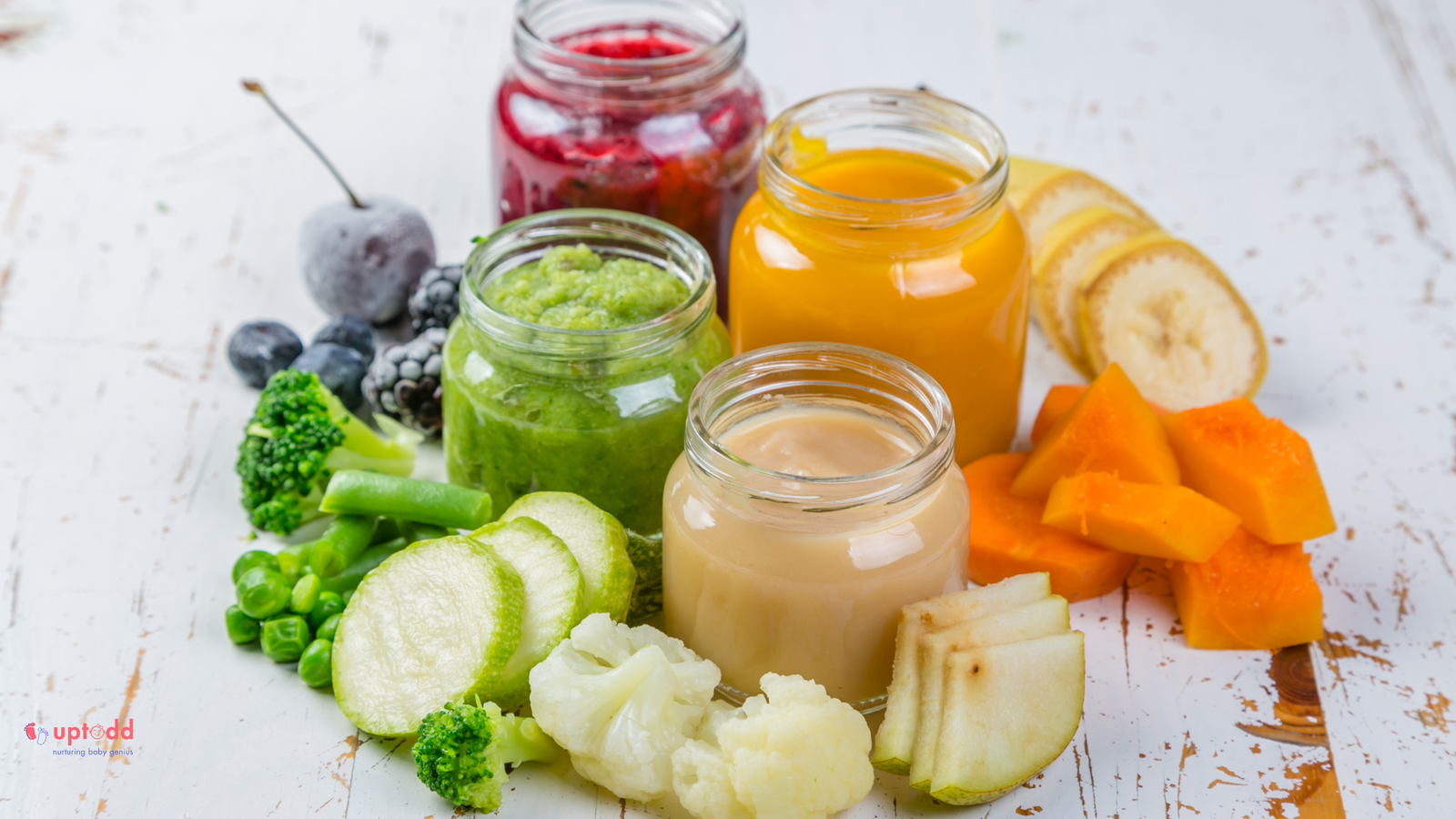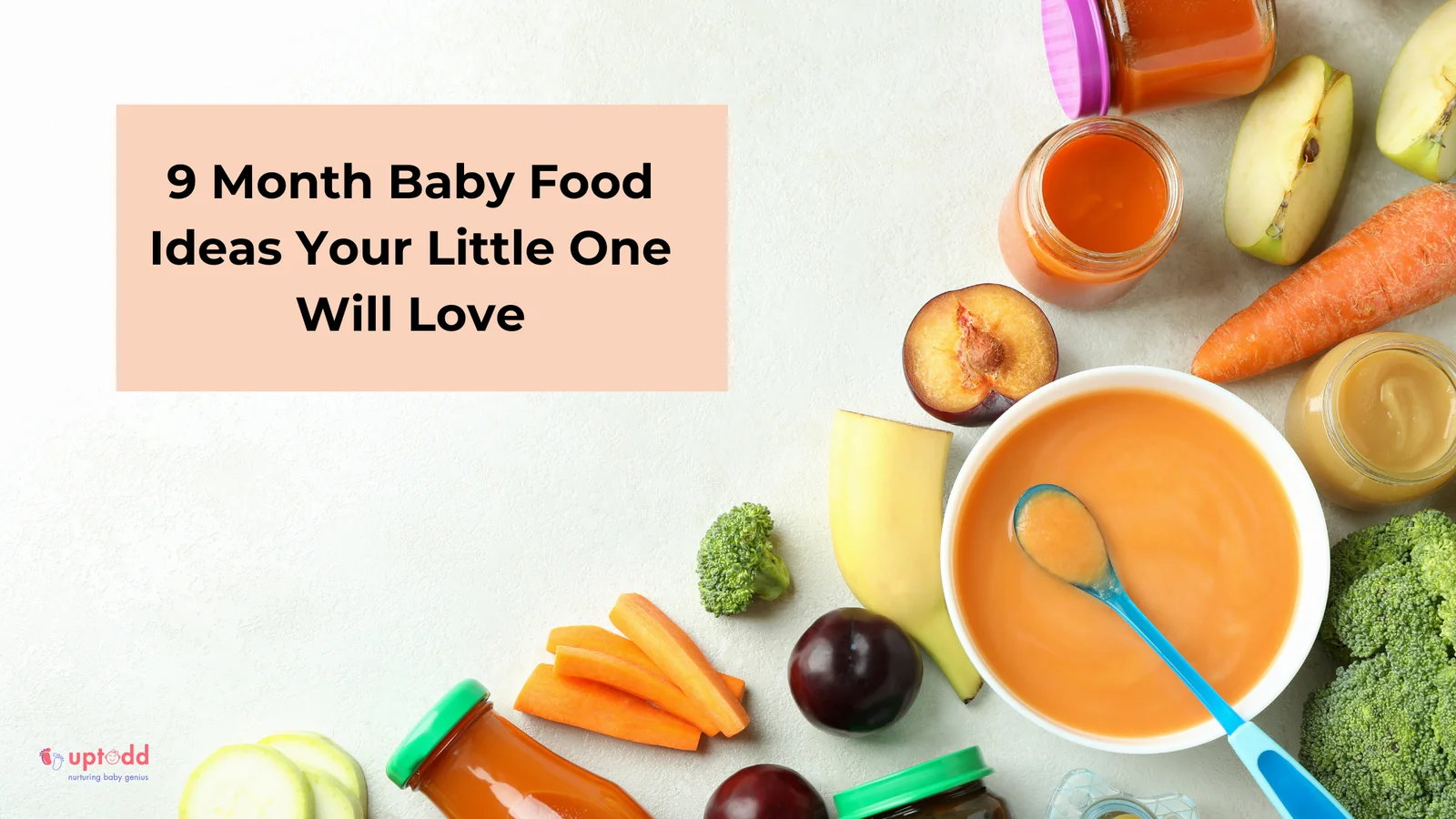
As parents, you must always wonder how fast your baby grows in the first year. But do you know that as your baby grows so do their nutritional needs and their foods evolve around the same. Today in this blog we have created a proper plan around- 9-month-old baby food, so that your little one gets the right nutrition required by their body.
First of all let us see what we will cover in this blog-
- How are food needs changing in 9th month
- 9 month baby food requirements
- Top foods to introduce
So first of all let us begin with understanding-
How are food needs changing in 9th month
While a 9 months old baby does start taking semi solids around 3/4 times a day, it should not be overlooked that breastfeeding or formula feeding is equally important in providing essential nutrients to your baby throughout the first year.
By the ninth month, your baby has reached key developmental milestones that are reflected in their shifting nutritional needs. Let us first see what are the changes happening-
Increased Energy Requirements
Around this age your baby has become more mobile and their energy levels are increasing day by day while crawling, pulling to stand, and exploring their environment. During this period their body needs more carbohydrates in the form of rice, oats, sweet potatoes, bananas, and whole-grain cereals.
Developing bones and muscles
When the baby is starting to crawl, stand and eventually walk it is important that their muscles and bones can take their weight and are strong too. This helps your baby to achieve milestones on time without any complications. At this age their body needs iron, calcium, zinc, and vitamins A, D, and C to help brain development, ensuring strong bones and teeth and improved immune system function.
Bridging Nutritional Gaps
Breastmilk or formula alone can’t fulfil your baby’s nutritional demands, especially for iron and calories. This is because their natural iron stores begin to decline 6 months after birth. Here solids become necessary to cover nutritional gaps, giving additional energy and important elements to enable rapid growth and development. Fortified cereals, pureed meats, and lentils, as well as calorie-dense alternatives such as mashed sweet potatoes, avocados, and bananas, are essential sources of iron.
Now since we know how important it is to give right food to your baby at 9 months of age let’s see –
Needs for Nutrition at Nine Months
Daily Needs for Calories
Your 9-month-old baby typically needs 750–900 calories a day, which are divided between solid foods and breast milk or formula. The consumption of calories ought to be separated into:
400–500 calories from 24–32 ounces of formula or breast milk
Two to three substantial meals (250–400 kcal)
One or two healthy (100 calorie) snacks
Important nutrients that are essential for your baby’s growth
Meat, beans, and fortified cereals provide 11 mg of iron.
300 mg of calcium from dairy and fortified foods
3 mg of zinc from meat, eggs, and whole grains
400 IU of vitamin D-Dietary supplements and exposure to sunshine
50 mg of vitamin C from fruits and vegetables
Needs for Protein and Good Fats
11 grams of protein per day
30g of healthy fats each day
Babies usually require three main meals and two nutritious snacks each day at nine months of age. This timetable guarantees steady energy levels and aids in the establishment of regular eating habits.

Reference- Food for 9 months
Top Foods to introduce
Let me tell you the top foods that you can give your baby at 9 months-
Mashed bananas are one example of a soft fruit or vegetable.
Slices of steamed apples
Cubes of cooked sweet potatoes
Pieces of soft pear
Sticks of steamed carrots
Iron-rich Choices:
Lentils pureed
Infant cereals enriched with iron
Beans mashed
Softly cooked dark greens
Grain-based Foods:
Well-cooked pasta
Soft rice
Whole grain bread (small pieces)
Oatmeal
Quinoa
Protein Sources:
Eggs Scrambled or hard-boiled
Fish Deboned
Chicken Finely minced
Tofu Soft cubes
Yogurt Plain, full-fat
Foods to Avoid:
Honey (risk of botulism)
Whole nuts and seeds
Hard, raw vegetables
Whole grapes
Large chunks of meat
Added salt and sugar
Babies are ready to experiment with different flavors and textures around nine months. To avoid choking, serve these foods in tiny, controllable portions. To keep an eye out for any possible allergic responses, always introduce new meals one at a time and wait three to four days between them. Keep in mind to chop fruits into tiny bits the size of your pinky fingertip and cook veggies until they are tender enough to mash with your fingertips.
Now that you know what the finest first foods for your 9-month-old are, let’s look at how to prepare them safely and successfully.
Reference- 9 month baby foods
Techniques for Preparing Food
Methods for Pureeing
- Blending and steaming: Blend until smooth after steaming veggies until they are soft.
- Using a fork to mash is ideal for soft fruits and cooked vegetables.
- Adding liquid: To get the right consistency, use cooking water, formula, or breast milk.
Make sure your baby is sitting up straight in their high chair and keep an eye on them while they eat. To avoid swallowing, cut food into pieces no bigger than 1/4 inch. Get in touch with your pediatrician right away if you see any adverse responses, such as rashes, vomiting, or trouble breathing.
Now that you understand food safety precautions, let’s explore how to support your baby’s developing feeding skills.
Establishing Healthy Mealtime Habits
- Create dependable procedures to promote wholesome eating:
- Establish regular mealtimes in a space set apart for eating.
- Make use of a suitable high chair that has foot support.
- Encourage messy food exploration by dining together and modeling good eating habits.
- Keep the atmosphere relaxed and stress-free and give lots of praise for feeding attempts.
Conclusion
Each step is vital to your baby’s healthy growth and eating habits, from creating a regular feeding schedule to selecting suitable textures and preparation techniques.
Always put food safety first, keep an eye out for allergic reactions, and acknowledge your baby’s increasing independence during mealtimes. Every baby develops at their own pace, so be patient and adaptable as you continue this feeding journey. To assist your child form lifelong good eating habits, establish a positive mealtime atmosphere and keep providing a range of nutrient-dense foods.




Leave a Reply